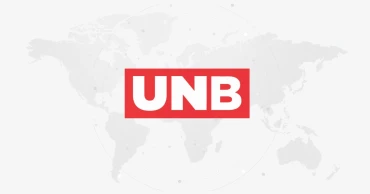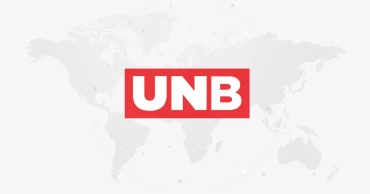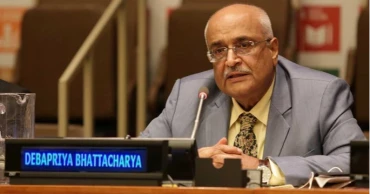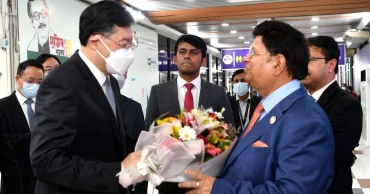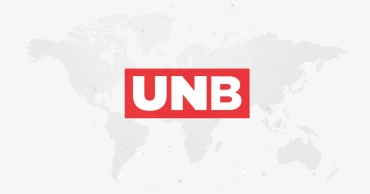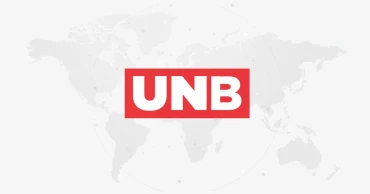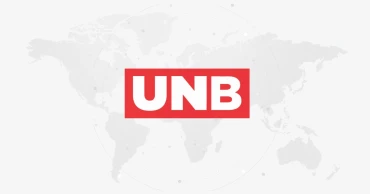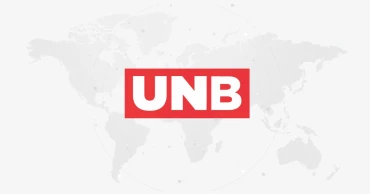policy
IMF satisfied with Bangladesh’s reform progress but flags key challenges: Salehuddin
Finance Adviser Dr Salehuddin Ahmed on Tuesday (November 18) said the International Monetary Fund (IMF) has expressed satisfaction with Bangladesh’s ongoing economic reforms although reiterated concerns over several structural challenges that require closer attention.
“They said the situation is overall good but they are monitoring the challenges. We are working under a plan but they feel that taking some steps a little faster would bring better outcomes,” he told reporters after meetings of the Advisers Council Committee on Economic Affairs and the Committee on Government Purchase at the Secretariat.
He noted that the IMF is particularly concerned about the speed of policy implementation especially surrounding interest rate adjustments.
“Increasing the policy rate by the central bank cannot be done suddenly. Everyone knows that. We have to ensure supply-side improvements at the same time,” he said.
Dr Salehuddin also mentioned that the IMF has raised issues related to the banking sector.
“They have taken five banks under observation which they consider a major challenge,” he said, adding that the government needs to undertake tough reforms to strengthen financial governance.
On revenue administration, the adviser said the IMF is satisfied with the current progress of the National Board of Revenue (NBR) but expects reforms to continue steadily. “The process has become principled but manpower restructuring and capacity enhancement will take time,” he said.
Read more: Bangladesh’s reserves still remain above $31 billion after ACU payment
He added that while it may not be possible to achieve a complete turnaround within the current government’s tenure substantial groundwork and structural preparations would be completed.
“We may not reach the final conclusion but the logical framework and preparatory work will be done,” he assured.
Responding to a question on whether the IMF has set any new conditions, Dr Salehuddin said no fresh conditions were imposed.
“This was more like a consultation. They expressed satisfaction with the measures we have taken so far. The economic situation is largely under control and the remaining time will be used for consolidation,” he said.
The $4.7 billion IMF loan programme, approved in January 2023, aims to support Bangladesh’s economic stability, strengthen fiscal reforms, and enhance resilience amid global economic pressures.
Several tranches have already been disbursed while further installments remain tied to policy performance benchmarks and structural reforms.
The IMF will delay disbursing the sixth tranche until the next national election and the new elected government assumes office.
Read more: Bangladesh economy in ‘waiting vortex’; experts urge credible elections
The interim government that assumed power on August 8, 2024 three days after the Awami League regime was ousted amid a mass uprising announced that the next general election would be held in February.
Finance ministry officials said that theyare expecting the releases of the sixth and the seventh tranches in June, 2026.
On June 23, the IMF approved the release of the fourth and fifth tranches amounting to $1.3 billion, taking the overall amount of disbursement to $3.6 billion.
In June 2025, the IMF also increased the overall loan amount to $5.5 billion from $4.7 billion under the loan programme that began in 2023 under the AL regime in 2023 to meet the balance of payment shortage.
The progarmme period has also been extended by six months to January 27, 2027 from July 2026, following requests from Dhaka.
The interim government has already reduced the balance of payment pressure.
Driven by higher remittance and export earnings, the country’s gross foreign exchange reserves increased to $32 billion on October 16, the highest in 31 months.
The latest IMF mission is also linked to the Article IV report, an annual consultations with its member countries on overall economy, on Bangladesh.
Read more: Jamaat-e-Islami holds meeting with IMF on economy and tax system
3 months ago
Quader blames motorcycles and easy bikes for increasing road accidents
Road Transport and Bridges Minister Obaidul Quader today (June 19, 2024) said that motorcycles and easy bikes are the leading causes of road accidents across the country.
Quader made these remarks during an Eid greetings exchange at his ministry's conference room in the Secretariat at 11:30 am.
"It's very unfortunate that lately, motorcycle accidents have become more frequent. Looking at the accident data, motorcycles account for the highest number of accidents, followed by easy bikes. Reckless driving also plays a significant role. We cannot ignore this. I urge the Secretary to expedite the formulation of a policy," he said.
Jatri Kalyan Samity calls for end to Eid transport fare anarchy and road accidents
The minister further mentioned that the lack of regulation for millions of three-wheelers and motorcycles is disrupting order on the roads, highlighting the urgent need for a policy.
"People's lives should come before livelihoods. In trying to protect livelihoods, lives are being put at risk. Those involved in electoral politics often support or endorse this. Easy bikes on highways receive a lot of support, sometimes even encouragement from behind the scenes. In Dhaka, our current regulations ensure that 98 percent of riders have helmets," the minister said.
Three dead, one injured in separate road accidents in Kurigram, Gazipur
Quader also noted that while the Eid journeys on roads have been relatively smooth, the return trips remain a concern. "The return journeys often receive less attention, which can lead to accidents. Therefore, we must focus on ensuring the safety of the return journeys as well."
He emphasized that maintaining discipline on the roads will significantly reduce accidents. "We must prioritize discipline to reduce road accidents," Quader added.
Road accidents claimed 708 lives in April: Jatri Kalyan Samity
1 year ago
Ambitious targets: Govt aims to collect Tk 5872 billion and Tk 7097 billion revenue in FY 2024-25, FY 2025-26
The government of Bangladesh has set ambitious revenue collection targets for the fiscal years 2024-25 and 2025-26, aiming to gather Tk 5872 billion and Tk 7097 billion, respectively. The strategy hinges on enhancing digitalization and simplifying tax procedures for both businesses and individuals.
The focus will be on direct taxes and VAT to raise more revenue. In addition to expanding the tax net and increasing the capacity of tax officials, exercises will be carried out to rationalise the current culture of widespread tax exemptions and to bring in heightened transparency in the budgetary discourse.
As per the Medium Term Macroeconomic Policy Statement (2023-24 to 2025-26) of the Finance Division of Finance Ministry, some Tk 5343 billion will come from the tax revenue sector in 2024-25 fiscal and Tk 6463 billion in 2025-26.
In the next two fiscal years, the National Board of Revenue (NBR) will provide Tk 5095 billion and Tk 6171 billion.
From the Income Tax wing, the projected collection will be Tk 1753 billion for the next fiscal, and Tk 2123 billion for 2025-26 fiscal. Collection from the import duties will be Tk 1511 billion and Tk 1830 billion respectively.
Tk 16.8cr in 4 days: AL revenues from nomination forms outpace toll collection from megaprojects
From VAT and Supplementary Duties, the revenue collection will be Tk 1831 billion and Tk 2218 billion respectively.
The non-NBR tax for 2024-25 and 2025-26 will be Tk 248 billion and Tk 292 billion respectively. Non-tax revenue collection will be Tk 529 billion and Tk 634 billion respectively.
The target for the running 2023-24 fiscal is Tk 5000 billion with Tk 4500 billion from tax revenue. Of the total amount, Tk 4300 billion will come from NBR through Tk 1480 billion from income tax, Tk 1275 billion from import duties, Tk 1545 billion from VAT and Supplementary duties. Some Tk 200 billion will be collected from the non-NBR sector while Tk 500 billion from non-tax revenue sector.
According to the Medium Term Macroeconomic Policy Statement, revenue outturns estimated for 2023-24 and projection for the next two years show high elasticity and buoyancy, implying robustness in revenue mobilisation in the medium term.
It mentions that among the tax and non-tax parts of the revenue, the tax revenue is forecasted to be more buoyant and elastic than the non-tax part.
Read more: Tax automation would generate more revenue collection: DCCI President
The elasticity data shows that the overall revenue is projected to grow 1.65 times higher than the nominal GDP in FY 2025-26.
As per the statement, the revenue elasticity of GDP for the 2023-24 fiscal is 1.28 times higher than the last fiscal while it is projected to be 1.40 times higher in the next 2024-25 fiscal year.
The tax revenue elasticity of GDP will be 1.33 times higher in the current fiscal while it will be 1.50 times higher in the next fiscal and 1.66 times higher in 2025-26 fiscal year.
The non-tax revenue elasticity of GDP for the running fiscal will be 0.92 times higher in the current fiscal, 0.47 times higher in the next fiscal year, and 1.57 times higher in 2025-26 fiscal year.
On the other hand, the buoyancy indicates that, in FY 2025-26 the tax revenue in real terms may grow 98 percent higher than the growth of real GDP.
The Policy Statement mentions that the revenue mobilisation acts as a catalyst to achieve the development outcomes of a country. Bangladesh has envisioned its long-term development trajectory to be a higher middle-income country in 2031 and to be a developed country in 2041.
Read more: Increase revenue, quality of services at airports: Faruk Khan tells CAAB
In addition to these aspirations, the ‘Perspective Plan of Bangladesh 2021-2041’ has targeted to raise the revenue- GDP ratio to 19.55 percent by 2031 and to reach 24 percent by 2041.
The statement says that the spectacular growth Bangladesh registered in the last decades, however, has not been underpinned by concomitant revenue growth. A large share of the revenue comes from the direct (income tax) and indirect taxes (VAT and customs) collected by the National Board of Revenue (NBR). Non-NBR taxes and Non-Tax Revenue (NTR) consists of smaller parts.
It said that there is a need to identify the reasons for low revenue collection to move onto the essential next step to correct the course. It is important to understand various issues such as the economic structure (large informality and exemptions), structural weaknesses (complicated processes and information asymmetry), and cultural factors (apathy towards paying taxes) that contribute to significant underperformance in revenue collection.
The government, the policy statement said, with the support of private sector operators, is keen to make paying taxes easy, tax rules easy to understand and rationalise tax exemptions.
Success in revenue collection will be strengthened by making the tax administration easy to approach, increasing digitalization to bring in transparency and predictability and bringing in progressivity in taxation where rich people pay a higher part of the taxes, it added.
Revenue collection up by 14.36 percent in July-October, but behind target: NBR
1 year ago
Awami League's policy unchanged despite allowing Jamaat rally: Home Minister
Home Minister Asaduzzaman Khan said that the policy of the Awami League remains unchanged although Jamaat has been allowed to hold rally after a decade.
“While unregistered political parties are permitted to hold indoor events, they must adhere to certain guidelines. In this case, the Commissioner verified that Jamaat intended to hold an indoor rally,” he said.
Also Read: Jamaat's statement on resisting upcoming nat'l election came from BNP: Hasan Mahmud
He made the remarks while talking to reporters after attending the 18th foundation anniversary ceremony of Highway Police at Rajarbagh on Sunday afternoon.
Jamaat is an unregistered political party and various unregistered political parties in the country frequently organize different programs, said Asaduzzaman.
Also Read: Jamaat holds first rally after a decade, demands polls under caretaker govt
“There has been no change in Awami League's policy. Unregistered political parties can hold their meetings indoors,” he said.
Also Read: BNP behind Jamaat’s protest, meaning they are preparing for arson: Quader
2 years ago
Safeguards are needed to protect vulnerable people under IMF-backed reforms: Debapriya
Debapriya Bhattacharya, public policy analyst and distinguished fellow of Centre for Policy Dialogue (CPD), said on Monday that when the IMF takes a reform programme for a country, sometimes inequality increases, because of the conditions they attach.
So, safeguards are needed when the IMF is involved in any major reform agenda, said the prominent economist.
He made the statement in a dialogue of the CPD-Citizen Platform titled 'How the concern of disadvantaged people can be reflected in the upcoming national budget during the IMF reform period’, held at Bangabandhu International Conference Centre (BICC) in the capital on Monday.
Presenting a keynote paper on the topic Debapriya said, when the IMF programme is taking place in a country, it tries to impose an authority on the economy of that country. Similarly, in Bangladesh the global lender imposed conditions of cutting subsidies on energy, electricity, advocated for market-based foreign exchange and interest rates, which could trigger sufferings of the disadvantaged groups.
In addition, the IMF has spoken of additional tax-revenue collection. Debapriya said.
He said there is no room to disagree with this, but from whom the tax will be collected, that is a big question.
He also complained that there is no standard system of tax collection in the country so far.
Planning minister MA Mannan was present in the function as the chief guest while Rana Mohammad Sohail MP, member of parliamentary standing committee on finance ministry and barrister Rumeen Farhana, an ex-MP of the current parliament from BNP, were present as the special guests.
Advocate Sultana Kamal chaired the discussion while former NBR Chairman Dr Muhammad Abdu Mazid, economist professor Mustafizur Rahman, CPD’s executive director Dr Fahmida Khatun, among others, spoke in the function.
Representatives of different disadvantaged groups including old aged, youth leaders, students, physically challenged people, farmers, tribal groups, fishermen, women and cleaners’ community were present.
Planning minister MA Mannan said despite efforts made by members of the parliament, the government's allocation often fails to reach the country's underprivileged people.
The minister emphasised on how the underprivileged were deprived in different sectors. But Prime Minister Sheikh Hasina understands the sufferings of the disadvantaged groups and she is trying to allocate more in the budget to save them, he said.
"Bangladesh is not dependent on the International Monetary Fund [IMF]. The budget is entirely the government's own plan. The IMF is merely a side-actor," he said.
The minister also highlighted inflation as the biggest challenge at the moment, though he noted that it had slightly decreased last month.
Debapriya said, according to the data of the Bureau of Statistics, poverty has decreased but inequality has increased. The disparity has also increased, alongside consumption inequality, he said.
He, however, noted that data on wealth inequality was not available. He also expressed doubts about how much reform could be done depending on indirect taxes.
Debapriya recommended the government should maintain a balance between sectors in terms of reforms and sectoral disparity.
He also emphasised on the need to raise direct taxes to minimise the tax burden on the lower income group of people.
2 years ago
Bangladesh reassures Chinese FM of one-China policy, seeks better trade relations
Bangladesh has conveyed to China that it maintains a balanced foreign policy and walks together with all the countries while reassuring Dhaka's support to Beijing.
"We believe in one-China principle. We maintain a balanced foreign policy. This is our principle. We will extend our support (to China) time to time," Foreign Minister Dr AK Abdul Momen told reporters on Tuesday (January 10, 2023) as conveyed to his Chinese counterpart.
Newly appointed Chinese Foreign Minister Qin Gang had a brief stopover at Hazrat Shahjalal International Airport early Tuesday.
Foreign Minister Momen received his Chinese counterpart upon his arrival at around 1:58am, a senior official at the Ministry of Foreign Affairs told UNB.
Read More: No matter who, Bangladesh doesn’t want foreign interference in its internal affairs: Momen
The two Foreign Ministers had brief meeting at the VIP Lounge of the airport and discussed issues of mutual interest.
3 years ago
Govt formulating policy to appoint MDs, senior posts at SCBs
The financial institution division (FID), a wing of the Ministry of Finance is formulating 'The Employment, Promotion and Posting Policy-2023' for the appointment and promotion of senior officers of state-owned commercial banks of Bangladesh.
A committee led by the finance minister will appoint and promote people to these posts based on the basis of 100 marks in 8 categories, a source of the ministry told UNB on Sunday.
Apart from this, the candidates will be scrutinized before the appointment. A committee of 6 members will be formed, led by the finance minister.
Read: Investors’ financial literacy must to boost capital market: Commerce Minister
According to the sources, contractual recruitment and posting for a maximum of three years will be made for the posts of Managing Director (MD) and Chief Executive Officer (CEO) through selection from among the Managing Directors working in state-owned commercial banks, specialized banks, and financial institutions or through promotion from Deputy Managing Directors (DMDs).
Sources of FID said recommendations will be made by the selection committee following the seniority, experience, report of the NSI and Anti-Corruption Commission, and the circular issued by Bangladesh Bank from time to time.
Contractual appointments will be made to the posts of Managing Director and CEO with the recommendation of the committee with the approval of the Prime Minister.
Read: Bangladesh earned $27.22b from exports in July-Dec amid new records
A senior official of FID said apart from this, promotion, appointment, posting and inter-bank transfers to the post of Deputy Managing Director in specialized banks and financial institutions will be restricted to specialized banks and financial institutions.
However, in the interest of the state, posting and inter-bank transfer can be made from among the deputy managing directors of state-owned commercial banks to the post of deputy managing directors in specialized banks and financial institutions.
As per the policy, in the case of promotion, the candidates eligible for promotion-educational qualification mark 15, length of service in a bank or financial institution -5, banking diploma-5, professional degree-5, professional publications -5, employment record 5, annual confidential application -40 and interview -15), etc will be selected by the committee on the basis of their mark out of a total 100 marks.
Read More: Govt to save Tk10,000 cr annually from importing edible oil: Agri Minister.
3 years ago
Policy, climate, war make 2022 'pivot year' for clean energy
For renewable energy companies in India, it's a good time to be in business.
One of India’s largest renewable energy firms, Renew Power, will be among the corporations big and small hoping for a piece of a $2.6 billion government scheme that encourages the domestic manufacturing of components required to produce solar energy. It's the biggest such incentive in India's history.
Renew Power's CEO Sumant Sinha said the government funds for clean energy send “a strong signal” that the country wants “to become a manufacturing location for renewable energy equipment and a global alternative to China eventually.”
“We are excited to be a part of this journey,” he said.
The company has over 100 clean energy projects across India and has become the world’s tenth largest solar and wind energy company in just over a decade.
Other major governments around the world have been green lighting ambitious renewable energy policies this past year that aim for major expansions of wind and solar energies, along with development of technologies like carbon capture, which captures carbon dioxide, a central cause of climate change, and stores it in the ground. Some of the policies also include tax credits to buy electric vehicles, heat pumps or energy efficient materials for construction.
Read more: Every dollar invested in climate adaptation brings a much higher return on investment: GCA CEO
The United States signed into law the Inflation Reduction Act, the most ambitious climate legislation in U.S. history, the European parliament passed the REPower EU plan to reduce dependence on Russian fossil fuels and fast forward the transition to clean energy and China announced ambitious schemes to enable the country to meet its 2030 clean energy goals five years ahead of schedule.
Experts say the task is now to build on this momentum in 2023, strengthen energy grid infrastructure and resolve backend issues which slow down the distribution and transmission of clean energy.
“From an energy perspective, 2022 will go down as a pivot year. For the first time, we have discernible proof that fossil fuel demand after 200 years of growth had reached a peak in 2019 and we are now bumping along a plateau before an inevitable decline,” said Kingsmill Bond, an energy strategist at the Rocky Mountain Institute, a clean energy non-profit group.
RMI’s research has found that global energy demand grew by around six additional exajoules in 2022 — enough energy for around 6 million transatlantic flights. This is less than usual year-on-year growth as energy use is getting more efficient, the report said. Solar and wind supply growth this year was also calculated to be about six exajoules.
Bond added that the price of clean energy was getting closer to that of fossil fuels and in some cases it was cheaper.
A report by the International Energy Agency said that oil prices rose well above $100 per barrel in mid-2022 and high gas and coal prices accounted for electricity cost hikes around the world. But increased use of clean energy saved Asian countries, including China and India, a total of $34 billion in the past year, a separate report found.
Read more: New abnormal: Climate disaster damage ‘down’ to $268 billion
Energy analysts say that the global energy crisis triggered by the Russian invasion of Ukraine and increasing climate threats such as the disastrous floods in Pakistan have accelerated the clean energy policies and big tickets investments that are needed to transition to renewable energy, especially wind and solar energy, around the world.
The sudden lack of access to fossil fuels and supply chain crunches were also other key reasons for the aggressive tilt towards cleaner energy. For example, Russia’s sale of gas to Europe was reduced to a trickle.
The invasion “had the effect of making it apparent that clean energy is the solution," said Lauri Myllyvirta, a lead analyst at the Centre for Research on Energy and Clean Air.
Despite the positive momentum towards clean energy, there were some pitfalls too.
“Knee jerk reactions saw some places shift back to fossil fuels even if its at a higher price to the taxpayer,” said Vibhuti Garg, a New Delhi-based energy economist at the Institute for Energy Economics and Financial Analysis.
India's coal production increased by about 17% from April to November 2022. Bangladesh increased its imports of natural gas and went ahead with opening thermal powerplants in the country. Germany, a strong advocate of clean energy, turned to coal and oil to address its short term power needs.
“It was a good year for renewable energy but sadly, not a bad year for fossil fuels either,” Garg added.
Read more: In new role as G-20 chair, India set to focus on climate
But spurred by momentum from previous years the clean energy sector worldwide nevertheless took off this year.
“You know, 20 years ago, renewables became the cleanest forms of energy and then in the last few years, renewables become the cheapest form of energy," said Dave Jones, an energy analyst at London-based environmental think-tank, Ember. “Only this year, they’ve become the most secure form of energy."
Another report by the IEA said that developments in 2022 triggered unprecedented momentum behind renewables, with the world set to add as much renewable power in the next five years as it did in the past 20.
“There is still a lot that needs to be done but I think 2022 will be remembered as the year in which for the first time, renewables have ticked all the boxes,” Jones said.
There's acknowledgement from those in the sector that more work needs to be done to overcome the scale of the transition.
Sinha of Renew Power hopes that government policies in 2023 focus on dealing with the bottlenecks that prevent clean energy growth.
“Currently the power sector is designed around fossil fuels and suddenly you have all this clean energy coming into the grid," said Sinha.
"We need more proactive policies that find ways to make room for renewables.”
3 years ago
PMO collecting data to tackle energy crisis in next summer
Bangladesh Prime Minister’s Office (PMO) has been collecting necessary information and data from two divisions and their associate bodies in the power and energy sector to make some policy decisions on power, gas, and petroleum prices.
According to official sources, the PMO will soon reconvene a recently postponed meeting to discuss the issues where dealing with a tough possible situation in the coming summer might top the agenda.
They said that the PMO had convened a meeting on December 15 to discuss the overall situation in the power and energy sector.
“But at the last moment, the meeting was postponed”, said a top official in the Power Division adding that a new principal secretary to the Prime Minister and also a new cabinet secretary took office on the day for which the meeting was postponed.
Read: Dhaka seeks Riyadh's support to meet energy needs
“We hope the suspended meeting will be called soon where the two top bureaucrats may attend”, he said.
The issue of power tariff enhancement in the retail consumer level will get a top priority in the proposed meeting”, said a senior official of the largest organisation in the power sector, preferring not to be quoted because of its sensitivity.
Power Cell director general Mohammad Hossain said that his organisation has also provided necessary data to the PMO and the Power Division as per their requirements.
Official sources said the PMO is collecting data and information against the backdrop of the government’s plan to increase power tariff at retail consumer level to cover a huge flaw in the power sector’s revenue collection.
Read: Ensuring access to electricity at an affordable cost is govt’s prime goal: PM’s Energy Advisor
Because of the purchase of electricity from the private sector at higher rates and sell it to consumers at lower rates, the loss of Bangladesh Power Development Board (BPDB), state-owned principal organisation, was estimated to be Tk 48,000 crore in the current fiscal year 2022-23.
The officials said the recent hike of about 20 percent in bulk power tariff, effective from December 1, might reduce the loss by only Tk 5000 crore.
To cover the remaining loss, all the six distribution companies were asked by the Power Division to submit their respective proposals to the Bangladesh Energy Regulatory Commission (BERC).
They already submitted a proposal to the BERC to increase the retail power tariff by about 20 percent.
Read: Cabinet approves amendment to let govt decide energy price without BERC
But the BERC needs to follow a public hearing to take any decision on the issue and the whole process needs about 90 days while the government is in urgent need to increase the retail power tariff.
In such a situation, the Cabinet on November28 approved an amendment to BERC Ordinance 2022 to empower the government to set fuel tariff on its own under special circumstances without waiting for the commission’s public hearing and decision.
Now the BERC is in a dilemma whether it will move to hold a public hearing to adjust retail power tariff or the government on its own takes decision on retail power tariff enhancement.
Officials said the PMO office wants to learn about the entire situation so that it can give an instruction to the Power Division to take the future decision.
Read More: Mitsubishi Power to continue support Bangladesh power industry amid growing energy need
The officials also said that a directive is also expected from the PMO meeting to tackle the situation in the next summer, which normally starts from February 15 with an extra load in power supply.
Normally an extra load of about 3000 MW in power supply is assumed to be coming from the agriculture irrigation sector in the coming summer, which may continue until May next year.
The fasting month of Ramada, which will begin from the first week of April next year will also put another load of 3000 MW.
But due to the primary fuel crisis, the government is under pressure to increase the power generation and a big deficit is apprehended in the coming year, officials said.
Read More: Europe can’t put its energy needs first while requesting India to act otherwise: Jaishankar
All these issues are expected to be discussed in the PMO meeting where the State Minister and the PM’s energy advisor are likely to be present, they said.
Prime Minister Sheikh Hasina at a meeting recently said that the government supplies electricity to everyone at subsidised prices though the production cost is much higher.
But it will not be possible to provide electricity at lower prices considering the global recession, she said.
"The actual cost will have to be paid," she said, adding that the price of gas has increased in the international market.
Read More: Bulk power tariff hike won’t affect retail consumers right now: Nasrul Hamid
"Everyone, including businessmen in the country, will have to exercise austerity and will have to be ready to pay the money spent on the (increased) price of gas and transport cost. Otherwise, we will not be able to provide electricity. If you want (electricity), you will have to pay the real prices," she added.
The PM said costs of electricity, gas, water, and fuel can be reduced by exercising austerity.
Currently, the installed power generation capacity of Bangladesh is over 25,000 MW while the generation was limited to 12,000 MW because of the primary fuel crisis.
3 years ago
Malaysia's Bangladesh policy remains unchanged despite change in government
Malaysian High Commissioner to Bangladesh Haznah Md Hashim has said her country's policy towards Bangladesh remains the same although a new government has come into power in Malaysia.
The envoy was speaking at the annual general meeting (AGM) of the Bangladesh-Malaysia Chamber of Commerce and Industry (BMCCI) Saturday at a Dhaka hotel.
"Bangladesh and Malaysia have had a brotherly relationship since the emergence of Bangladesh. And Malaysia values its friends," Haznah, also chief patron of the BMCCI, added.
Read more: Bangladesh invites Malaysian businesses to invest in ICT parks
"We will help the Bangladeshi business community, especially the BMCCI members in any kind of endeavour."
BMCCI President Syed Almas Kabir presided over the AGM.
BMCCI Secretary General Md Motaher Hoshan Khana and Treasurer BMCCI Syed Moinuddin Ahmed also spoke.
3 years ago


